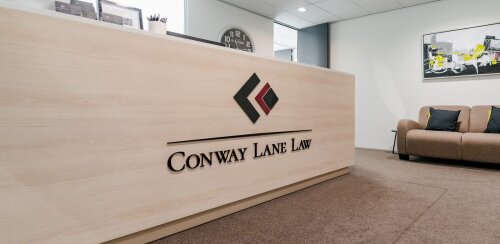Best Same Sex & LGBT Lawyers in Rangiora
Share your needs with us, get contacted by law firms.
Free. Takes 2 min.
Free Guide to Hiring a Family Lawyer
List of the best lawyers in Rangiora, New Zealand
1. About Same Sex & LGBT Law in Rangiora, New Zealand
Rangiora residents are governed by New Zealand law, which provides comprehensive protections for lesbian, gay, bisexual, transgender and queer (LGBTQ+) individuals and families. National legislation establishes marriage, civil unions, discrimination protections and family law rights that apply across Rangiora and the Canterbury region.
Key protections include equal marriage rights, anti-discrimination in employment and services, and the ability for LGBTQ+ couples to form families through adoption or guardianship arrangements. Local practitioners in Rangiora often work with courts and registries in the broader Canterbury area, including Christchurch, to handle these matters.
Understanding how these laws apply to your situation in Rangiora requires clear information about your status, goals and timelines. A solicitor or lawyer focused on LGBTQ+ law can translate complex statutes into practical steps for your case.
Same-sex marriage has been legally recognized in New Zealand since 2013, with ongoing protections against discrimination in all major areas of public life.
Source notes and statutory texts are available through official channels such as the New Zealand Legislation site and the Human Rights Commission. These resources help residents verify rights, remedies and timelines relevant to Rangiora cases.
2. Why You May Need a Lawyer
- A same-sex couple in Rangiora wants to formalize a union and needs guidance on the correct celebrant process, paperwork, and the implications for property and superannuation.
- A transgender person seeks to update name and gender markers on legal documents and birth records, which involves careful handling of official forms and registry processes.
- A same-sex couple aims to adopt a child or pursue guardianship, requiring alignment of adoption law, court processes and potential international considerations.
- A partner experiences discrimination at work or in housing in Rangiora on the basis of sexual orientation or gender identity and needs a formal complaint process and possible remedy.
- A same-sex couple wants to prepare a will, enduring power of attorney and medical treatment decisions to protect each other in Canterbury and beyond.
- A separated LGBTQ+ couple needs help with relationship property division under the Relationships Property Act, including asset division and debt settlement.
Engaging a lawyer in Rangiora can clarify timelines, explain jurisdiction-specific steps, and help you prepare for negotiations or court appearances. A local solicitor or barrister with LGBTQ+ practice can tailor advice to Canterbury and Canterbury District Court procedures where relevant.
3. Local Laws Overview
- Marriage Act 1955 (amended by the Marriage Definition of Marriage Act 2013) - This law governs all marriages in New Zealand and, post-2013, recognises marriage as a relationship between two persons, enabling same-sex marriages nationwide. In Rangiora, marriages are officiated by approved celebrants and registered with the Department of Internal Affairs. The 2013 amendment took effect on 19 August 2013.
- Civil Union Act 2004 - Establishes civil unions for couples and grants similar rights to those of marriage in many areas, including property and parental responsibilities. The act came into force in 2005 in New Zealand and applies to same-sex and opposite-sex couples alike, including in the Canterbury region.
- Human Rights Act 1993 - Prohibits discrimination based on sexual orientation and gender identity in employment, housing, education and the provision of goods and services. This Act is a cornerstone for LGBTQ+ equality in Rangiora and across New Zealand, with enforcement options administered by the Human Rights Commission.
Recent developments in New Zealand law continue to strengthen LGBTQ+ protections, including ongoing enforcement mechanisms under the Human Rights Act and related anti-discrimination provisions. For statutory texts and updates, consult official sources such as New Zealand Legislation, New Zealand Human Rights Commission, and Ministry of Justice.
4. Frequently Asked Questions
What is the difference between marriage and civil union in New Zealand?
Marriage and civil union both confer similar rights in many areas, including property and parental rights. Marriage is a formal ceremony recognized nationwide; civil unions provide equivalent legal status for couples who choose that path. In Rangiora, both options are available through approved celebrants.
How do I start the process for same-sex marriage in Rangiora?
Book an appointment with a registered marriage celebrant, complete the notice of marriage, and provide identity documents. The celebrant submits the notice to the Registrar-General for approval, after which the ceremony can be scheduled.
What documents are needed to adopt as a same-sex couple in Canterbury?
Expect to provide proof of identity, relationship status, residence, and suitability as adoptive parents. The Department of Internal Affairs and the family court will assess safety, welfare and parental capacity for the child.
How long does a relationship property dispute take in Canterbury?
Timeline varies by complexity. Simple settlements may resolve in a few months; contested matters can take 6 to 12 months or longer with court schedules and mediation steps.
Do I need a solicitor or can I rely on a notary or online forms?
For family and discrimination matters, a solicitor or lawyer with Canterbury experience provides tailored advice, helps with affidavits and court filings, and reduces error risk.
Is discrimination against LGBT people illegal in Rangiora?
Yes. The Human Rights Act 1993 prohibits discrimination based on sexual orientation and gender identity in key areas. If you experience discrimination, a lawyer can help you pursue remedies or complaints.
Can I change my name or gender on official documents in NZ?
Yes. You can apply to update name and gender markers on official documents through appropriate government registries. A lawyer can guide you through forms and necessary evidence.
Should I make a will if I am in a same-sex relationship?
Yes. A will ensures your partner has clear rights to your estate, especially if you have children or shared assets. A solicitor can draft a will that reflects your wishes and minimizes disputes.
What is the process to update a birth certificate for a child of a same-sex couple?
Process varies by circumstances but generally involves applying for updated parentage or birth records through the Department of Internal Affairs, sometimes with court orders if needed.
How much does it cost to obtain legal advice in Rangiora for LGBTQ+ matters?
Costs vary by matter, complexity and the attorney's experience. Initial consultations in Rangiora may range from NZD 100 to NZD 350, with hourly rates afterward.
Is there a simpler path to basic information on LGBTQ+ rights in NZ?
Yes. You can access official resources such as the New Zealand Legislation site and the Human Rights Commission for plain language guidance and statutory summaries.
5. Additional Resources
- New Zealand Human Rights Commission (hrc.co.nz) - national watchdog for human rights, handles discrimination complaints based on sexual orientation and gender identity, and provides guidance on rights and remedies.
- New Zealand Legislation (legislation.govt.nz) - official database for Acts and amendments including the Marriage Act, Civil Union Act and Human Rights Act, with current and historical versions.
- Department of Internal Affairs (dia.govt.nz) - administers Births, Deaths and Marriages services, including name changes, gender marker updates on records, and registrations relevant to family matters.
6. Next Steps
- Clarify your goal and gather key documents such as IDs, proof of address, and any prior agreements or court orders relevant to your matter. Allocate 1-2 weeks for this preparation.
- Search for a Rangiora or Canterbury-based solicitor or barrister who specializes in LGBTQ+ law or family law with LGBTQ+ experience. Allow 1-3 weeks for finding a suitable match.
- Book an initial consultation and prepare a concise consultation package: list of questions, desired outcomes, and a summary of your current situation. Expect to spend 30-60 minutes per meeting.
- Discuss fees, timelines and potential strategies during the first meeting. Document fee structures (hourly rates, fixed fees, retainer) and request a written engagement letter.
- Decide on engagement and sign a formal agreement. If needed, obtain a second opinion within 1-2 weeks before proceeding with filings.
- Proceed with the chosen path (e.g., negotiations, mediation, or court processes). Plan for 4-12 weeks to receive initial filings or orders, depending on complexity.
- Review progress regularly with your lawyer and adjust strategy as needed. Schedule follow-up reviews every 4-8 weeks until the matter is resolved.
For authoritative information at each step, use official sources such as New Zealand Legislation, New Zealand Human Rights Commission and Ministry of Justice.
Lawzana helps you find the best lawyers and law firms in Rangiora through a curated and pre-screened list of qualified legal professionals. Our platform offers rankings and detailed profiles of attorneys and law firms, allowing you to compare based on practice areas, including Same Sex & LGBT, experience, and client feedback.
Each profile includes a description of the firm's areas of practice, client reviews, team members and partners, year of establishment, spoken languages, office locations, contact information, social media presence, and any published articles or resources. Most firms on our platform speak English and are experienced in both local and international legal matters.
Get a quote from top-rated law firms in Rangiora, New Zealand — quickly, securely, and without unnecessary hassle.
Disclaimer:
The information provided on this page is for general informational purposes only and does not constitute legal advice. While we strive to ensure the accuracy and relevance of the content, legal information may change over time, and interpretations of the law can vary. You should always consult with a qualified legal professional for advice specific to your situation.
We disclaim all liability for actions taken or not taken based on the content of this page. If you believe any information is incorrect or outdated, please contact us, and we will review and update it where appropriate.









